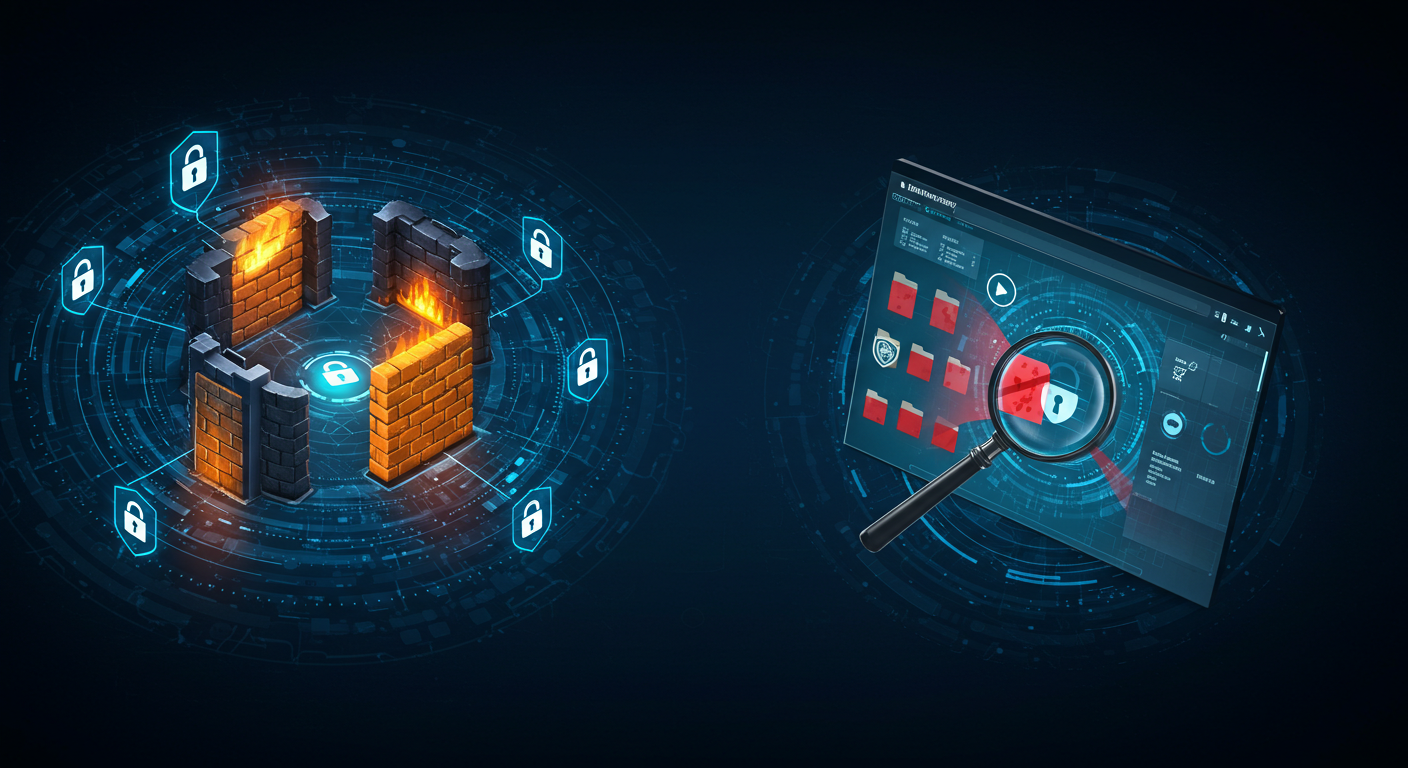
Firewall vs Antivirus Software: Key Differences Explained
Imagine leaving your front door wide open while locking your bedroom. That’s what happens when your system lacks proper security. Cyber threats are relentless, and without the right defence, your business is an easy target.
Firewalls stand guard at the entrance, blocking unwanted visitors, while antivirus software hunts down threats inside. Many believe one is enough, but each plays a unique role in protecting your data and operations.
At IT Sales and Services, we help businesses stay secure with tailored cybersecurity solutions. Whether you need a firewall, antivirus, or both, we ensure your defences are airtight.
Firewall vs Antivirus Software
Cybersecurity threats lurk everywhere, making it essential to safeguard your devices and data. Firewalls and antivirus software serve different roles, but both are crucial for strong network security and malware protection. Understanding the difference helps in choosing the best defence for your setup.
While a firewall blocks unwanted access to your network, antivirus software detects and removes malicious files. Each tool plays a role in keeping your system safe, and knowing when to use one, or both, can greatly improve protection. Let’s break down how these cybersecurity tools work and why they matter.
Understanding Firewall and Antivirus Software
Cybersecurity tools function like security guards for your devices, each managing different threats. A firewall controls incoming and outgoing network traffic, acting as a barrier between your system and potential dangers. It prevents hackers from gaining access and stops unauthorised data transfers.
Antivirus software, on the other hand, scans files, emails, and programs for harmful viruses and malware. It identifies infected files and removes them before they cause damage. The biggest difference between the two? A firewall focuses on network security, while antivirus software protects files within your system. Using both together creates a more secure digital environment.
How Firewalls Function
Firewalls work by filtering traffic and blocking harmful connections. There are hardware and software firewalls, and each operates differently. Hardware firewalls protect entire networks, filtering threats before they reach individual devices. Software firewalls, installed on computers, monitor programs and internet traffic.
Firewalls inspect data packets, determining if they should be allowed or blocked based on security rules. They stop cybercriminals from exploiting vulnerabilities, preventing network-based attacks such as denial-of-service (DDoS) attacks and unauthorised access. This constant monitoring ensures a secure connection between your system and the internet.
How Antivirus Software Works
Unlike firewalls, antivirus protection focuses on detecting and removing malicious files. It scans your system for harmful software, using two main methods—signature-based detection and behaviour-based detection.
Signature-based detection compares files to a database of known malware, quickly identifying threats. Behaviour-based detection watches how programs behave, flagging suspicious activity that could indicate infection. Real-time scanning keeps an eye on your device in the background, catching threats before they spread.
Key Differences Between Firewalls and Antivirus Software

The main distinction between firewall security and antivirus protection is how they function. A firewall monitors traffic, while antivirus software scans and removes threats. Firewalls are proactive, preventing cybercriminals from breaking in, while antivirus protection is reactive, eliminating malicious software that has already entered.
Use cases also differ. A firewall is best suited for preventing network breaches, while antivirus software shields against viruses and malware. Both are needed to cover all security gaps, ensuring stronger protection from cyber threats.
Common Threats Prevented by Firewalls and Antivirus Software
Firewalls protect against network-based threats like hacking attempts, phishing attacks, and unauthorised remote access. They stop intruders from compromising connected devices and prevent sensitive data from being exposed.
Antivirus software defends against malware, including ransomware and spyware. Without protection, malicious programs can steal personal information, disrupt system functionality, or demand payment in exchange for unlocking files. Together, firewalls and antivirus software form a reliable shield against modern cyber threats.
Choosing the Right Security Solution
Personal cybersecurity needs vary based on usage patterns. Protective software should match those needs, whether for casual browsing or handling sensitive information. Businesses require stronger security measures, often relying on enterprise-level firewalls and advanced antivirus solutions.
Paid options generally provide better features, such as enhanced real-time protection and frequent updates. Free solutions are available, though they may lack key security functions. Choosing the right balance depends on how much security you need and what level of protection fits your lifestyle.
Frequently Asked Questions (FAQ)
Can a firewall replace antivirus software?
No, a firewall and antivirus software have different functions. A firewall blocks unauthorised network access, while antivirus software removes malicious files. Both are needed for full protection.
Do I need both firewall and antivirus protection?
Yes, using both creates stronger cybersecurity. A firewall stops threats at the network level, while antivirus software catches malware that gets through.
What are the risks of not using security software?
Without a firewall, hackers can access your network. Without antivirus software, your system is vulnerable to viruses, ransomware, and phishing attacks. Both are essential for staying safe online.
How often should antivirus software be updated?
Frequent updates ensure protection against new threats. Check for updates weekly or enable automatic updates for the best security.
Are You Really Protected, or Just Hoping for the Best?
Security isn’t just about having the right tools—it’s about knowing how they work together to keep threats out. A single defence layer isn’t enough when cyber threats come from every direction. Having the wrong setup could leave critical gaps, giving hackers an open door instead of a locked fortress.
It’s all about balance. One protects your system from external threats, while the other defends against what’s already inside. Relying on just one is like locking your front door but leaving the windows wide open. To truly stay secure, both need to work in sync.
We at IT Sales and Services help businesses build a complete security shield—blocking threats before they strike and eliminating hidden risks. Let’s strengthen your defences with expert-backed IT solutions. Talk to us today.
